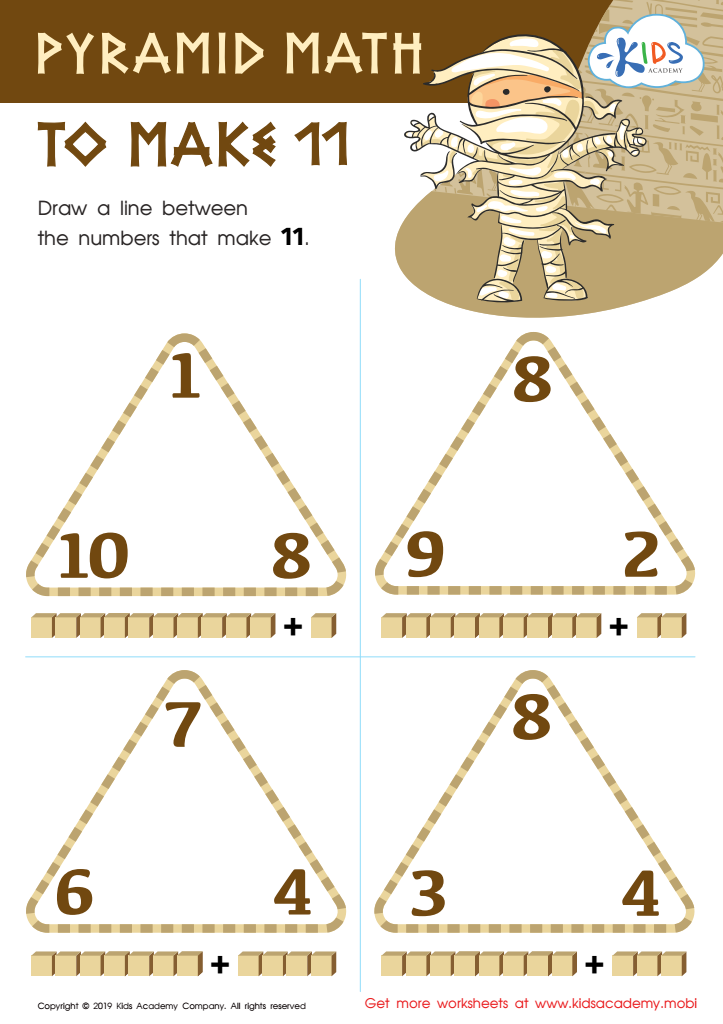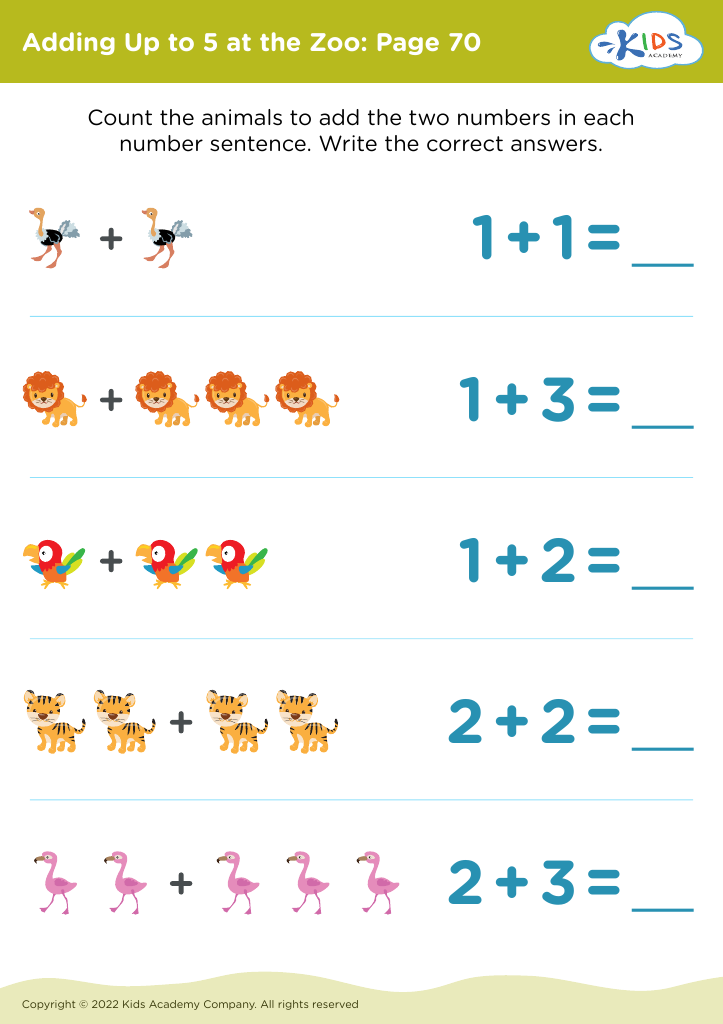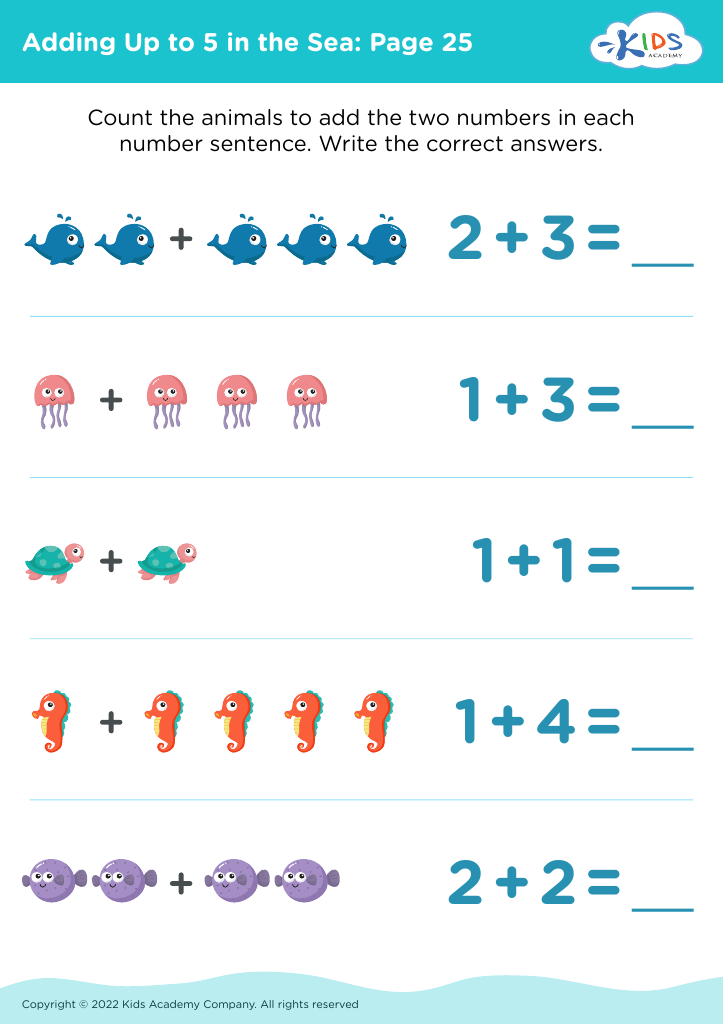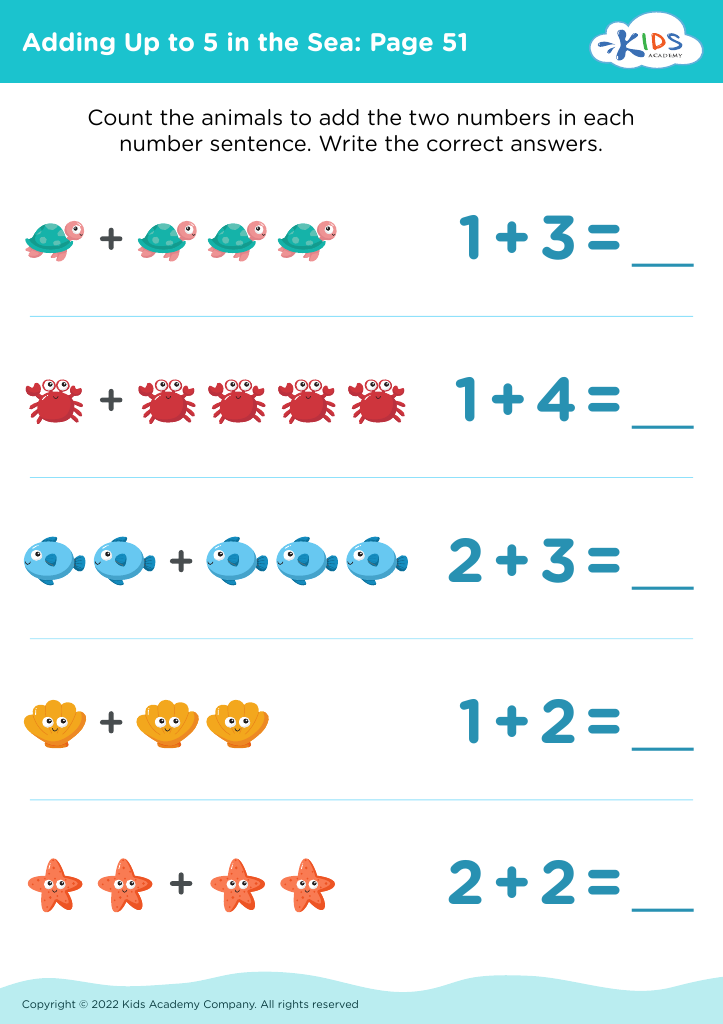Understanding number relationships Math Worksheets for 4-Year-Olds
4 filtered results
-
From - To
Unlock the world of numbers for your 4-year-old with our "Understanding Number Relationships" math worksheets! Designed specifically for early learners, these engaging activities help children grasp fundamental math concepts like counting, comparing, and ordering numbers. Our colorful, interactive worksheets make learning fun while reinforcing essential skills needed for future math success. Each worksheet features age-appropriate tasks that encourage critical thinking and problem-solving. With plenty of practice, your child will confidently explore number relationships and develop a strong mathematical foundation. Dive into the joy of learning with our thoughtfully crafted resources today, and watch your little one's love for math blossom!


Pyramid Math to Make 11 Worksheet
Understanding number relationships is crucial for 4-year-olds as it lays the foundation for their future mathematical skills. At this age, children are naturally curious and eager to explore concepts like counting, comparison, and basic operations. When parents and teachers prioritize this understanding, they help children develop critical thinking skills and problem-solving abilities that are essential not only in math but across all subjects.
By fostering an early comprehension of numbers, children learn to recognize patterns, make connections, and develop a sense of quantity. This not only boosts their confidence in handling numbers but also prepares them for more complex mathematical concepts later on, such as addition and subtraction. Engaging children in everyday activities—like counting toys, comparing sizes, or sharing snacks—turns learning into a fun and interactive experience.
Moreover, understanding number relationships aids in cognitive development, as it encourages logical reasoning and spatial awareness. Parents and teachers play a vital role in creating supportive environments where children feel encouraged to explore and experiment with numbers.
Ultimately, nurturing a solid grasp of number relationships at an early age ensures that children are well-equipped for academic success and instills a positive attitude toward mathematics that lasts a lifetime.




 Assign to My Students
Assign to My Students




















